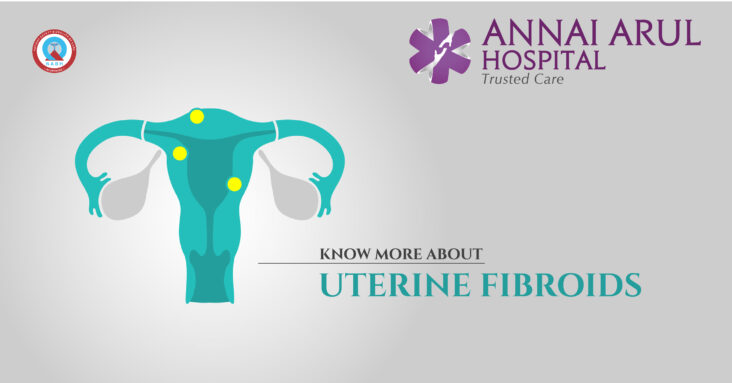KNOW MORE ABOUT UTERINE FIBROIDS
Uterine fibroid is a condition prevalent for most women at some point in their life. Many women already have uterine fibroids and never know it because it does not cause any pain or symptoms.
What are uterine fibroids?
Uterine fibroids that medically are called leiomyomas are muscular tumours that grow on the uterus. They are mostly non-cancerous, having them do not mean that they will lead to cancer.
These fibroids vary in size, shape and location. They are usually seen in the uterus, uterine walls and on the surface of the uterus. They sometimes have a stalk or stem by which they attach to the uterus. Uterine fibroids appear in women of childbearing age – between 30 and 40 years, but can appear at any age.
What are the symptoms of uterine fibroids?
Though usually, a person may not be aware of the uterine fibroid, they are found on a routine examination or ultrasound. The symptoms of uterine fibroids may include:
I Excessive bleeding or painful periods
I Bleeding in between periods
I Pressure of some sort, pain and fullness in the lower stomach
I Enlarged abdomen or uterus
I Difficult bowel movement and constipation
I An urge to urinate often
I Pain during intercourse
I Frequent miscarriage & infertility problems
What is the cause for uterine fibroids?
Still, the exact cause fo the fibroid is not known though we know that hormones and genetics are the main reasons for their presence. Hormones estrogen and progesterone will thicken the uterine wall during the monthly period and they affect the fibroid growth. That is why during menopause when the hormone production slows, there is a marked shrinking of the fibroid. Researchers have also found a genetic difference between the fibroid and other cells in the uterus.
Who is at risk of fibroids?
Age and race are the main reason and along with that, some other things causes uterine fibroids, like family history. Certain other factors include getting the first period at a very young age, birth control use, vitamin D deficiency and a diet rich in red meat. Diet deficient in greens, vegetables, fruits and dairy products and excess alcohol consumption also cause fibroids.
How to prevent fibroids?
Though many of the causes are beyond your control, fibroids can be prevented with change in certain lifestyle habits. Women with sugar complaint and a diet high in sugars are one of the reason. Easting fresh fruits, vegetables like arugula, broccoli, cabbage, cauliflower and turnip could lower your odds. These vegetables are rich in beta-carotene, folate, vitamin C, E and K plus other minerals and full of fiber. Along with regular diet, exercise can help lower your chances of uterine fibroids.
————————-


